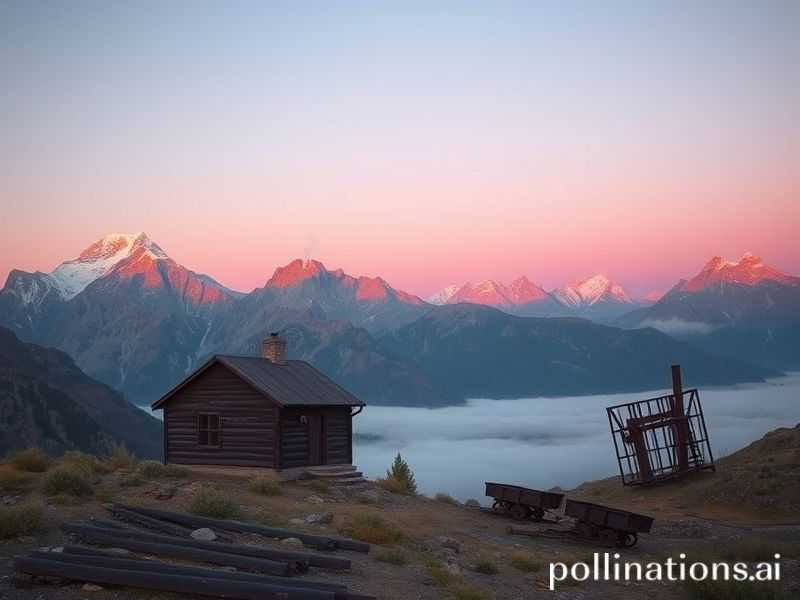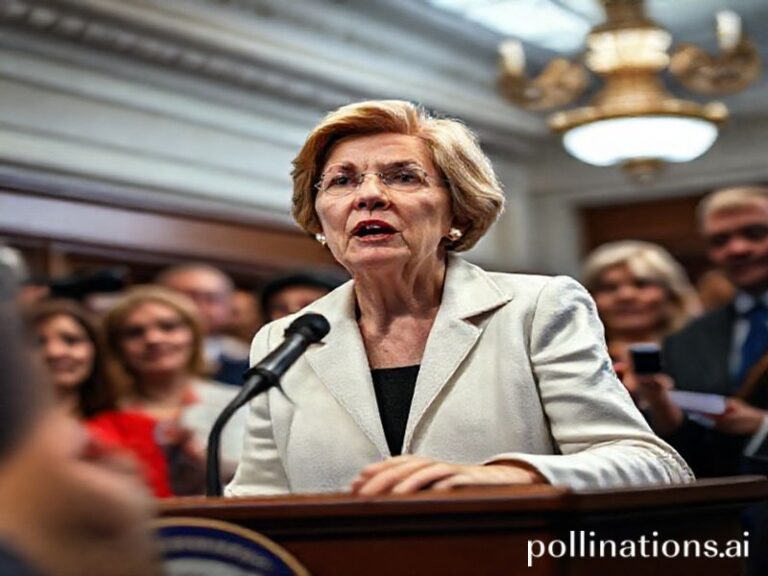From Rockies to rockies: How a Capital Letter Fell and the World Took up Geological Arbitrage
Rockies Without Borders
By Our Man in the Cheap Seats
It began, as most planetary absurdities do, with a humble typographical slip. Somewhere between the Denver Post newsroom and a sleep-deprived intern’s iPhone, the capital “R” in Rockies vanished, and the lowercase “rockies” were loosed upon the world. Within hours, #rockies was trending from Lagos to Lahore, not because anyone knew what it meant, but because it sounded vaguely illicit, like a discount cryptocurrency or a new synthetic stimulant. By the time American geologists woke up to clarify that the Rocky Mountains were still, in fact, right where they’d left them, the meme had already mutated into a global Rorschach test: to Brazilians, “rockies” were the stubborn stones hurled at police during yet another fare-hike protest; to Singaporean teens, they were artisanal pebbles sold as desk-toys for stress relief at US$49.99 a pop; to the French, naturally, they were petits cailloux philosophiques, existential gravel for the absurdist garden of modern life.
The first shipment arrived in Rotterdam on a Tuesday that felt like a Thursday. Forty metric tons of assorted granite, quartz, and what the manifest optimistically listed as “miscellaneous lithic bric-a-brac” sat in customs long enough to acquire its own Twitter account (@DetainedRockies), which gained 200k followers and a blue-check despite being, quite literally, a pile of rocks. EU officials convened an emergency Zoom, ostensibly to debate import tariffs, but mostly to stream themselves looking stern in front of flags. Meanwhile, the stones became an overnight metaphor for Brexit: inert, expensive to move, and nobody could decide who actually wanted them.
In Accra, sculptors saw opportunity where bureaucrats saw paperwork. Local artisans began carving tiny Mount Rushmores into the stones—four disapproving presidential faces peering out from chunks the size of a mango—and exporting them back to the United States as “Recycled Nationalism, Limited Edition.” The venture turned a 400% profit, proving once again that the global economy runs less on Adam Smith’s invisible hand than on the very visible middle finger.
Geopolitically, the Rockies—sorry, rockies—became a proxy for soft-power jostling. China’s Ministry of Culture launched the “One Belt, One Pebble” initiative, shipping river stones to Belt-and-Road partners with Confucian aphorisms laser-etched on the side. Russia countered with a state-sponsored TikTok trend: #BalalRockies, featuring babushkas knitting tiny balaclavas for stones and singing Soviet-era lullabies. The algorithm, being the only entity that never sleeps, blessed both campaigns with equal virulence. Somewhere in Silicon Valley, a junior engineer updated the engagement model to include “geological influence” and then went back to optimizing doomscrolling.
Of course, the environmental lobby weighed in. Greenpeace calculated the carbon footprint of flying rocks across oceans and declared the practice “peak Anthropocene.” Their press release was accompanied by a photo of a single tearful polar bear perched on a granite boulder drifting toward the Gulf Stream. The bear was later revealed to be a stock image from 2006, but the point lingered like smog over Delhi: humanity will, apparently, export anything that isn’t bolted down, and several things that are.
By quarter’s end, the World Trade Organization added “small decorative stones” to its quarterly report alongside semiconductors and soybeans. Analysts at Goldman Sachs issued a 78-page note titled “Rockies: The Asset Class You Can’t Lift,” recommending a diversified pebble portfolio hedged against currency fluctuations and existential dread. BlackRock quietly filed a prospectus for the iShares Global Aggregate Boulder ETF. It closed up 3.4% on its first day, because nothing says “safe haven” quite like owning a fractional share of a rock you will never touch.
And the original Rocky Mountains? They remain, stoic and slightly embarrassed, like a grandparent who just discovered the grandkids monetized the family silver on Etsy. Tourists still arrive in Denver expecting enlightenment and leave with altitude sickness and a fridge magnet. The mountains shrug—an imperceptible gesture that nevertheless triggers a small avalanche somewhere near Telluride, killing no one but reminding everyone that nature, unlike markets, actually does corrections.
So the next time you see #rockies trending, spare a thought for the pebble in your shoe, the paperweight on your desk, or the kidney stone you pray never arrives. Somewhere, someone is already drafting a prospectus. And somewhere else, a customs officer is ticking a box labeled “miscellaneous lithic bric-a-brac,” wondering how civilization came to this. The answer, dear reader, is one lowercase letter at a time.







